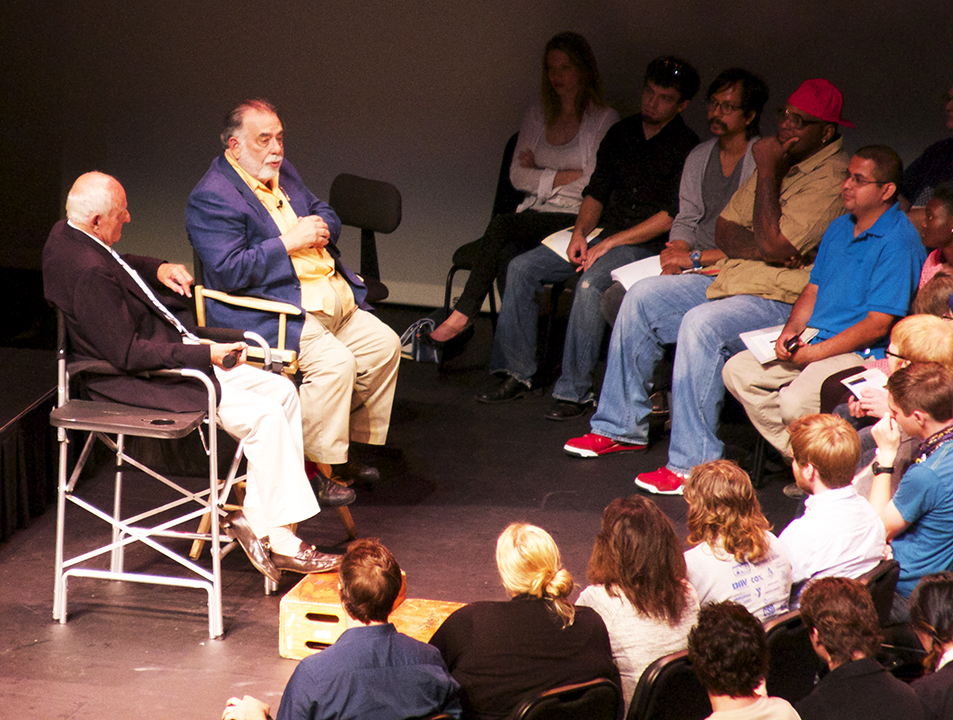Students take direction from Coppola


Academy Award winning director, writer, and producer Francis Ford Coppola told a group
of film students that part of being a creative person is self-doubt. He also explained how,
in order to move past this doubt, sometimes you can’t analyze your work right away, but
rather must wait until the end to judge it.
On Oct. 20 Coppola offered a master class to Film and Video majors, about 100 of whom
joined him on stage, while another 400 people took seats in the Visual and Performing
Arts Center auditorium.
Director of classic films such as “The Godfather” trilogy and “The Outsiders,” Coppola did not disappoint his audience in the first of OCCC’s VPAC Signature Series.
A sold-out crowd of more than 1000 came to fill the seats of state-of-the-art facility for his evening presentation.
One spectator, Dr. Janet C. Perry, OCCC’s director of Institutional Effectiveness, found the presentation moving.
“Francis Ford Coppola lived up to my expectation,” she said. “His ability to respond to student questions in an open professional manner was truly inspiring.”
One of the students that Coppola responded to was film major Terrance Littlejohn.
“I learned that originality is very important,” Littlejohn said. “You should continue to stay on the path that you’re on.
“He gave us some tools we can work with. I learned that success is a scale that you have to judge yourself on.”
Another film student, John Cunningham, whose focus is documentaries, seemed to take away a similar message.
“There’s lots of good information, especially for documentaries,” he said.
“He said if you make a documentary, make sure you’re passionate about it, which I think would be one of the biggest things.
“You can’t make a documentary if you’re not passionate about it.”
While some students listened to the inspiration in his words, many others listened to the education he provided.
“I came to this tonight to continue my education and to hear advice,” said Oklahoma Film Institute student Bunee Tomlinson. “Everybody has a different opinion, but sometimes that opinion can change who you are.”
Indeed Coppola gave the audience a glimpse into what it took for him to become a five-time Academy Award winner.
He talked about how he dealt with the actors he had cast in his movies.
One way he helped his actors was by telling them to go through their roles in an “as if” way. What this means is he would set them up “as if” they were playful, or “as if” they were angry, and see which situation he felt best fit the story.
Coppola also said that he would often have the actors just think their lines instead of actually speaking them. He explained that this would force the actors to bring out their emotions.
By doing this, he learned he could transform the actor into the character being portrayed, a skill only a true artist could accomplish.
Through his experience and knowledge, Coppola left the message that people are all individuals. He warned the student not to get taught out of their great ideas.
“Your thoughts are one in a billion,” he said.